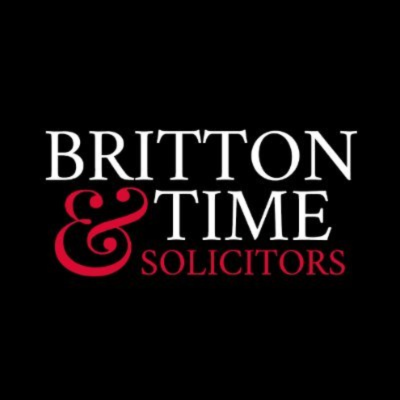
Breakdown:
- Understanding Your Right To Record Harassment At Work
- The Risks Of Sharing Workplace Recordings Without Consent
- When Can You Record Someone Who Is Harassing You At Work
- Can Secretly Recording Work Meetings Impact Your Employment
- Using Recordings As Evidence For Harassment Complaints
- Alternatives To Recording: Building Your Case Without Audio Evidence
Book A Consultation
Understanding Your Right to Record Harassment at Work
Workplace harassment can be distressing, and knowing your rights is crucial. In the UK, you have legal protections that allow you to document inappropriate behaviour. You can record conversations if you’re directly involved, which might help protect yourself from harmful workplace conduct.
- Recording must be done carefully and with consideration of privacy laws
- Evidence should be relevant and obtained legally
- Your employer cannot automatically dismiss you for making a legitimate recording.
Imagine Sarah, a junior marketing assistant, experiencing repeated inappropriate comments from a senior manager. By discreetly documenting these interactions, she created a timeline of harassment that supported her formal complaint. Her careful record-keeping became essential evidence when addressing the issue through proper workplace channels.
If you’re struggling with workplace harassment and need professional guidance, submit our lead form, and we’ll match you with SRA regulated solicitors specialising in employment law who can assess your specific situation and provide expert advice.
The Risks of Sharing Workplace Recordings Without Consent
Recording workplace conversations without explicit permission can land you in serious legal trouble. Unauthorised recordings breach privacy rights and potentially violate data protection regulations. The consequences can be severe, ranging from professional disciplinary actions to potential legal prosecution.
Key risks include:
- Substantial financial penalties under GDPR
- Potential dismissal from employment
- Criminal proceedings for privacy breaches
- Permanent damage to professional reputation
For instance, imagine capturing a confidential meeting on your phone and sharing it with colleagues. This seemingly innocent action could result in immediate termination, legal action, and long-term career implications. Even well-intentioned recordings can expose you to significant legal challenges.
Personal data protection laws are strict. Any recordings containing sensitive information without explicit consent can trigger complex legal proceedings. For an in-depth overview of GDPR and how it applies to workplace situations, visit the Information Commissioner’s Office
When Can You Record Someone Who Is Harassing You at Work?
Workplace harassment can escalate quickly, making documentation critical for your protection. When verbal abuse occurs in isolated spaces or persistent misconduct creates a hostile environment, recording might become your most powerful defence. Consider situations like:
- One-on-one interactions with limited witnesses
- Repeated inappropriate comments targeting your dignity
- Instances where verbal harassment feels intentionally manipulative
Your safety demands strategic evidence gathering. Public conversations are generally safer to record, whereas private interactions require careful legal assessment. The intent should always be personal protection, not confrontation.
Before recording, understand local workplace laws and potential implications. Your documentation must be precise, secure, and obtained legally. Gathering evidence discreetly can help substantiate claims of harassment, providing a clear, timestamped account of inappropriate behaviour.
If you’re experiencing workplace harassment, contact us and we’ll match you with award-winning SRA regulated solicitors who specialise in employment law.
Can Secretly Recording Work Meetings Impact Your Employment?
Secretly recording work meetings can seriously compromise your professional standing and career trajectory. Most employers have strict confidentiality guidelines that explicitly prohibit covert recording. Potential consequences include:
- Immediate termination
- Professional reputation damage
- Potential legal ramifications
Organisations view secret recordings as profound breaches of workplace trust, potentially revealing sensitive business information or capturing conversations without colleagues’ consent. These actions can destroy professional relationships and future career opportunities.
When workplace issues arise, legal experts recommend alternative documentation methods. Keep detailed written records of incidents, save email communications, and seek witness statements from colleagues. These approaches provide robust evidence while maintaining professional integrity.
If you’re experiencing workplace challenges that make you consider secret recordings, seeking professional guidance is crucial. Contact us, and we’ll match you with award-winning SRA regulated solicitors specialising in employment law.
Using Recordings as Evidence for Harassment Complaints
Employment tribunals carefully consider audio evidence, requiring precise documentation to validate harassment claims. When gathering recordings, you must prioritise legal and ethical approaches. Ensure your evidence captures the full context of inappropriate behaviour, maintaining clear, uninterrupted documentation.
- Recordings should be unedited and comprehensive
- Capture specific instances of harassment
- Include timestamps and identifiable details
Professional documentation strengthens your case significantly. Complement audio recordings with written incident logs, preserving email exchanges, text messages, and witness statements that corroborate your experience. These additional resources demonstrate consistent patterns of misconduct, enhancing the credibility of your complaint.
Understanding the nuanced requirements of employment tribunals is crucial for presenting a compelling case. For further guidance on how to gather evidence effectively and legally, visit Citizens Advice for additional resources on workplace harassment and employee rights.
Alternatives to Recording: Building Your Case Without Audio Evidence
Documenting workplace harassment requires strategic and careful evidence gathering. Your documentation can be powerful without relying on audio recordings. Focus on creating a comprehensive paper trail that captures the full extent of inappropriate behaviour. Write a detailed journal noting specific incidents, including dates, times, and precise descriptions of what occurred. Save digital communications like screenshots of text messages, emails, and social media interactions, ensuring timestamps are clearly visible.
Collect physical evidence such as:
- Threatening correspondence
- Photographs of workplace damage
- Medical records showing psychological impact
- Witness statements from colleagues
Corroborate your experiences by requesting written accounts from trusted colleagues, friends, or family members who have observed the harassment. Include their contact details and request detailed descriptions of witnessed incidents. These documentation strategies create a robust evidence trail that can effectively support your case.
If you're experiencing workplace harassment, contact us. Submit a lead form, and we'll match you with SRA-regulated solicitors who can provide expert legal support.
Related Articles

How to Document Harassment at Work Legally
Maintain A Detailed Incident Log Collect And Organise Supporting Evidence Why Documenting Minor Incidents Matters Seek Corroboration From Witnesses Book A ConsultationMaintain a Detailed Incident Log When dealing with workplace harassment, your documentation becomes...
Join Our Newsletter
Voluntary Redundancy Rules: A Complete Guide
Understanding Voluntary Redundancy Rules Employer Responsibilities And Legal Obligations Employee Eligibility For Voluntary Redundancy The Application And Selection Process Financial Exit Packages For Voluntary Redundancy Tax Implications Of Redundancy Payments Book A...
What Are the Rules for Pregnancy Sick Leave?
What Is Sick Leave During Pregnancy Can You Take Sick Leave During Pregnancy When Can You Take Sick Leave During Pregnancy How To Get Sick Leave During Pregnancy Reasons For Sick Leave During Pregnancy How Much Sick Leave Can You Take During Pregnancy Book A...
Statutory Maternity Pay: Your Complete Guide
Statutory Maternity Pay Who Is Eligible For Statutory Maternity Pay How Is Statutory Maternity Pay Calculated Statutory Maternity Pay Vs Maternity Allowance How Does Statutory Maternity Pay Affect Employment Benefits Can Employers Claim Back Statutory Maternity Pay...
What Constitutes Workplace Harassment?
Understanding Harassment At Work Key Examples Of Workplace Harassment The Impact Of Harassment On Employees Reporting Workplace Harassment: Steps To Take Employer Responsibilities In Preventing Harassment The Difference Between Harassment And Bullying Book A...








